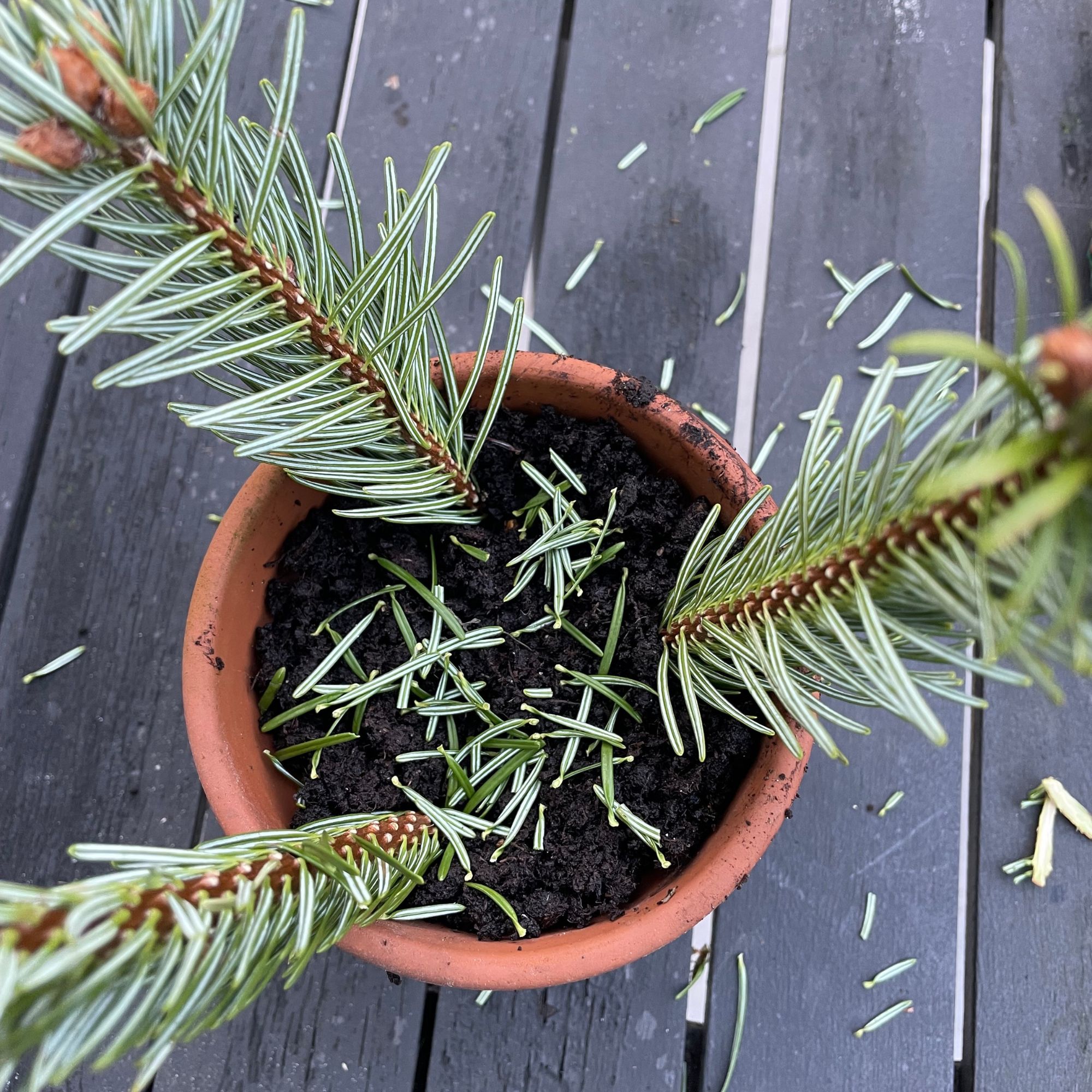
Ever wondered if it's possible to learn how to grow a Christmas tree from a cutting?
Well, if you learn the art of propagation, your real Christmas tree could last a lot longer than you'd think — through its cuttings, anyway. So before you recycle your Christmas tree for garden mulch, consider saving a few stems and potting them up.
Last weekend, garden writer Simon Akeroyd took to TikTok to share his horticultural wisdom, telling followers that they can take cuttings from their Christmas tree and grow a new tree for free.
We've rounded up Simon's key tips and explored just how effective this method is.
@simonakeroydgardener ♬ Don't You (Forget About Me) [2001 Remastered Version] - Simple Minds
Does it work?
Learning how to grow a Christmas tree from a cutting is simple, but does it work?
Like other plants you can take cuttings from, Christmas trees absolutely can be propagated via cuttings.
'Propagating a Christmas tree from a cutting can be very effective when the correct steps are followed, as long as you’re selecting healthy, new-growth stems,' says Josh Novell, garden plants expert and director of Polhill Garden Centre.
But if you're aiming for a full-sized tree, you might be disappointed.
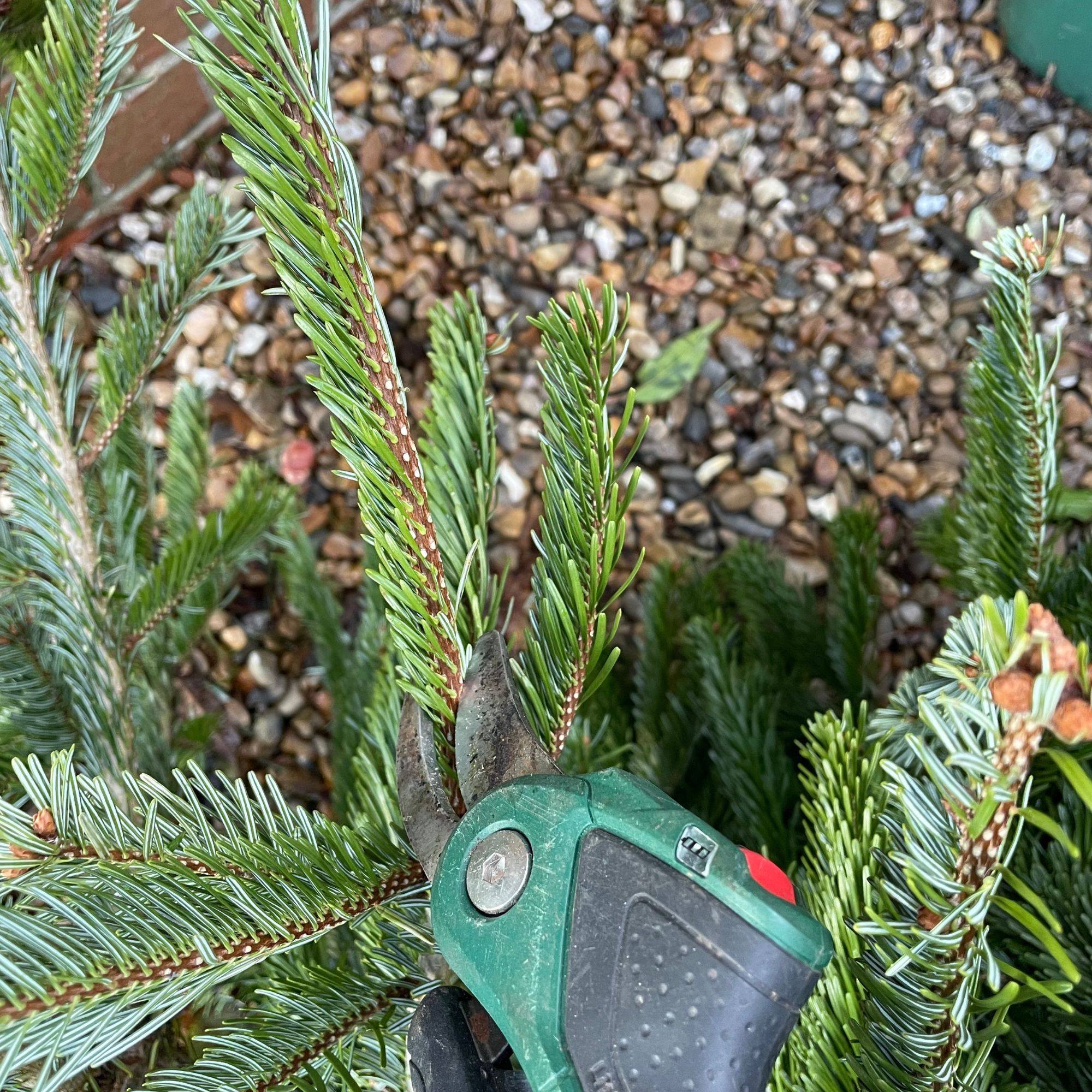
'Growing a Christmas tree from a cutting is possible, but it isn’t the best way to achieve a large, evenly proportioned tree,' explains Morris Hankinson, founder of Hopes Grove Nurseries.
'However, it can be done, even though the growth may take some time — up to ten years for a full-size tree — and the cutting may eventually become a small potted tree.'
So, how do you start? We've put together a guide inspired by Simon's tips, with additional pointers from other trusted garden experts.
What you'll need
- A clean, sturdy pair of secateurs like the Gardena Garden Secateurs from Amazon
- Rooting hormone like the Westland Organic Rooting Gel from Amazon
- Free-draining compost like the Gro-Sure Westland Seed & Cutting Compost from Amazon
- A small pot like this Classic Italian Terracotta Pot from Crocus
How to grow a Christmas tree from a cutting
1. Check the tree
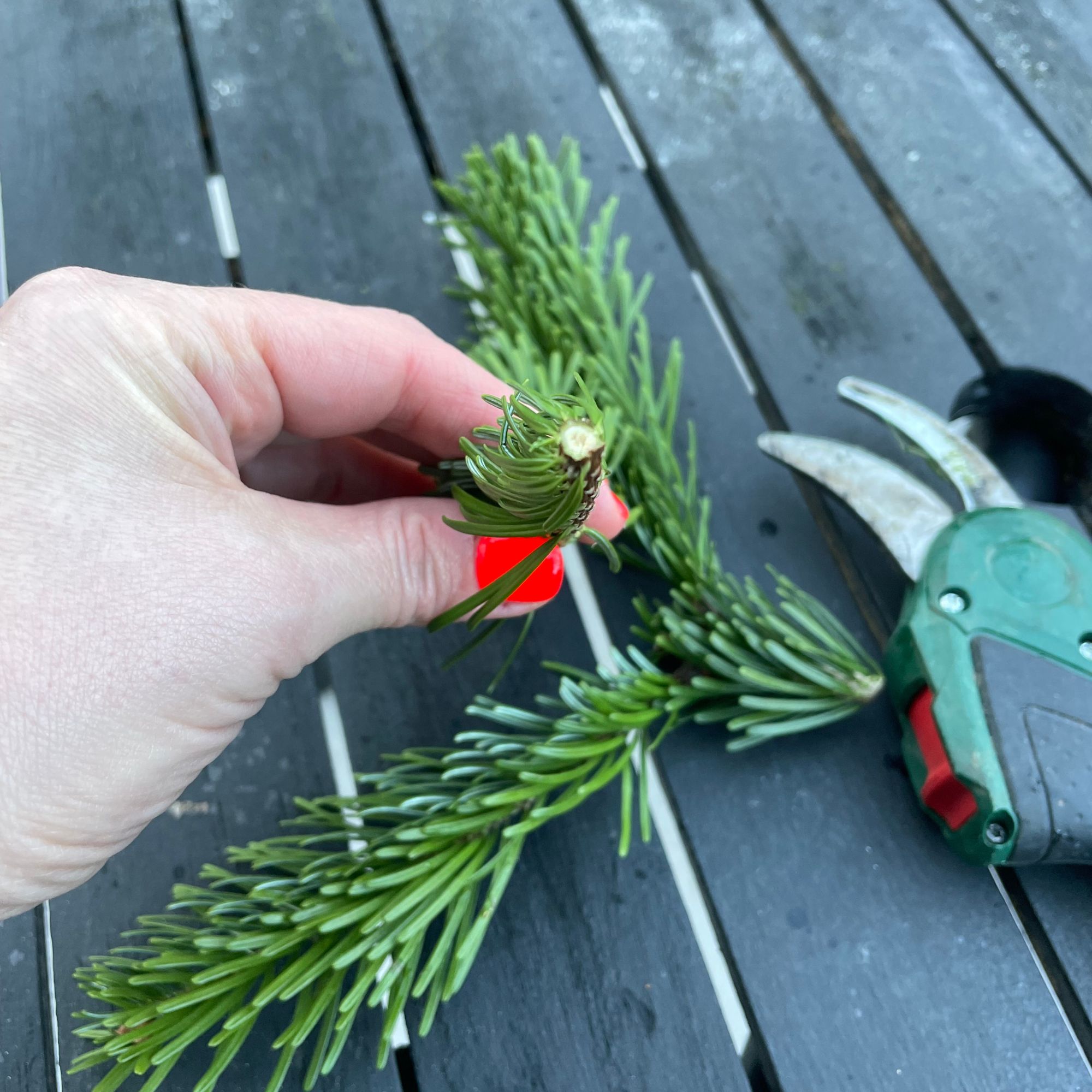
First, you’ll need to check the tree is still alive. Simon told followers to snip a branch off of the tree and see if it’s still green inside. If it is, it’s viable for propagation.
It's worth noting that cuttings from an older tree might be less successful.
'To increase the chances of success, you should use a cutting from a young, freshly cut tree, as once the tree is cut down and left in a tree lot or your garage for a few days, any cuttings taken are unlikely to be viable,' says Graham Smith MCIHort, gardening expert at LBS Horticulture.
2. Take the cutting

Now, choose a stem. Simon told us to cut a 15cm length of stem from new growth on the tree.
Then, remove the lower pine needles from the stem, leaving about half of the stem bare towards the base end. Simon picked the needles off by hand in his TikTok video.
Graham recommends taking more than one cutting while you're at it.
'Cut several stems from the Christmas tree to plant at once, and ensure that you remove all of the needles from the lower half of each stem,' he says.
3. Scratch around the base
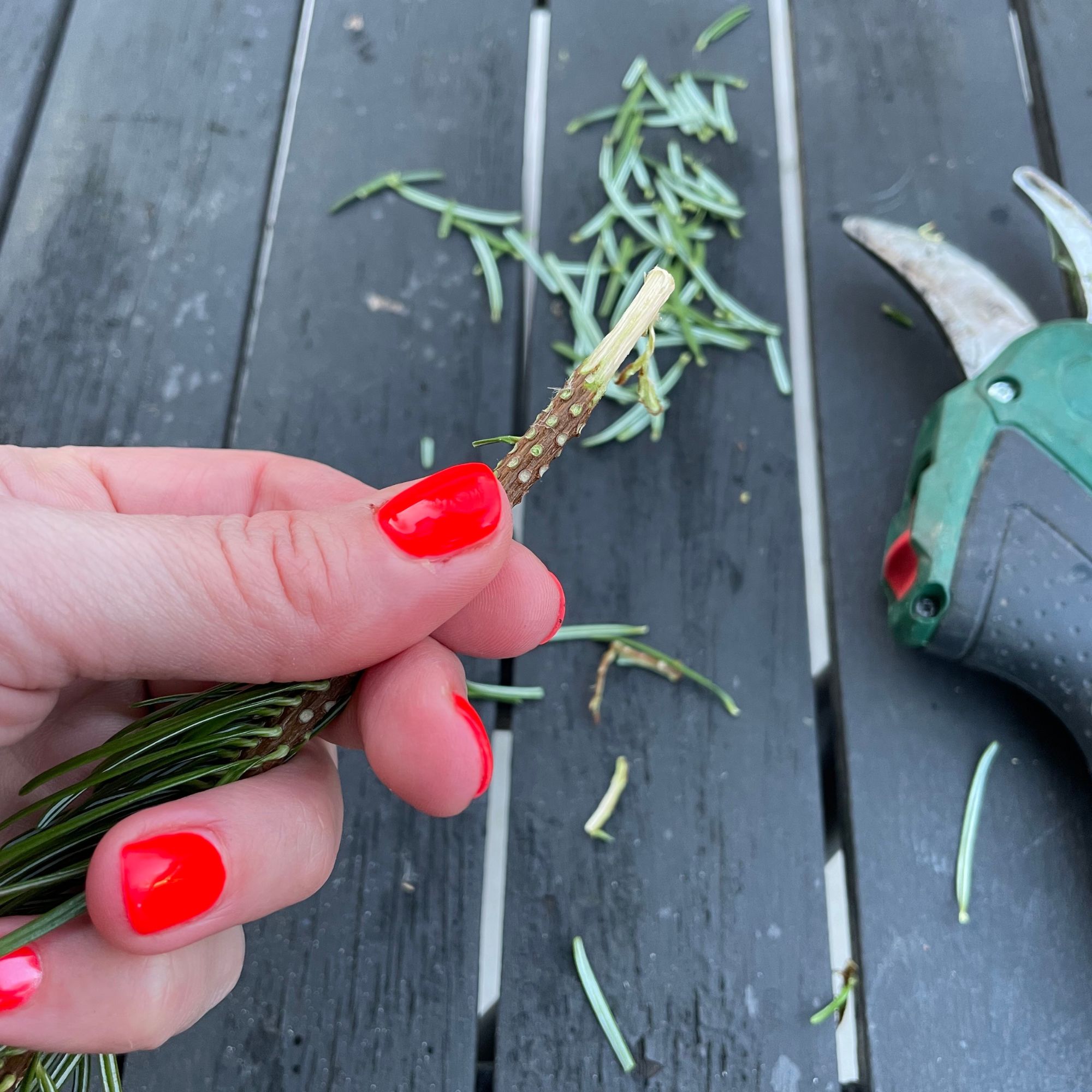
Next, you’ll need to scratch the surface of one side of the stem, near the base.
Simon used the blade of his secateurs to do this, but you can use a clean knife, too — just handle the blade with care and make sure you know how to clean garden tools properly beforehand.
The purpose of this step? To encourage new roots to form.
4. Speed up growth

Simon also included an optional step: dipping the base of the stem in hormone rooting powder or gel.
'Especially with evergreens, it can be helpful to dip the tip into rooting hormone powder which stimulates root growth,' explains Morris.
Simon also mentioned that some people prefer to rub the base of the stem in aloe vera gel for similar results.
'Scratching the base and using rooting hormones or aloe vera gel can help speed up root formation and boost success,' agrees Josh.
5. Pot it up
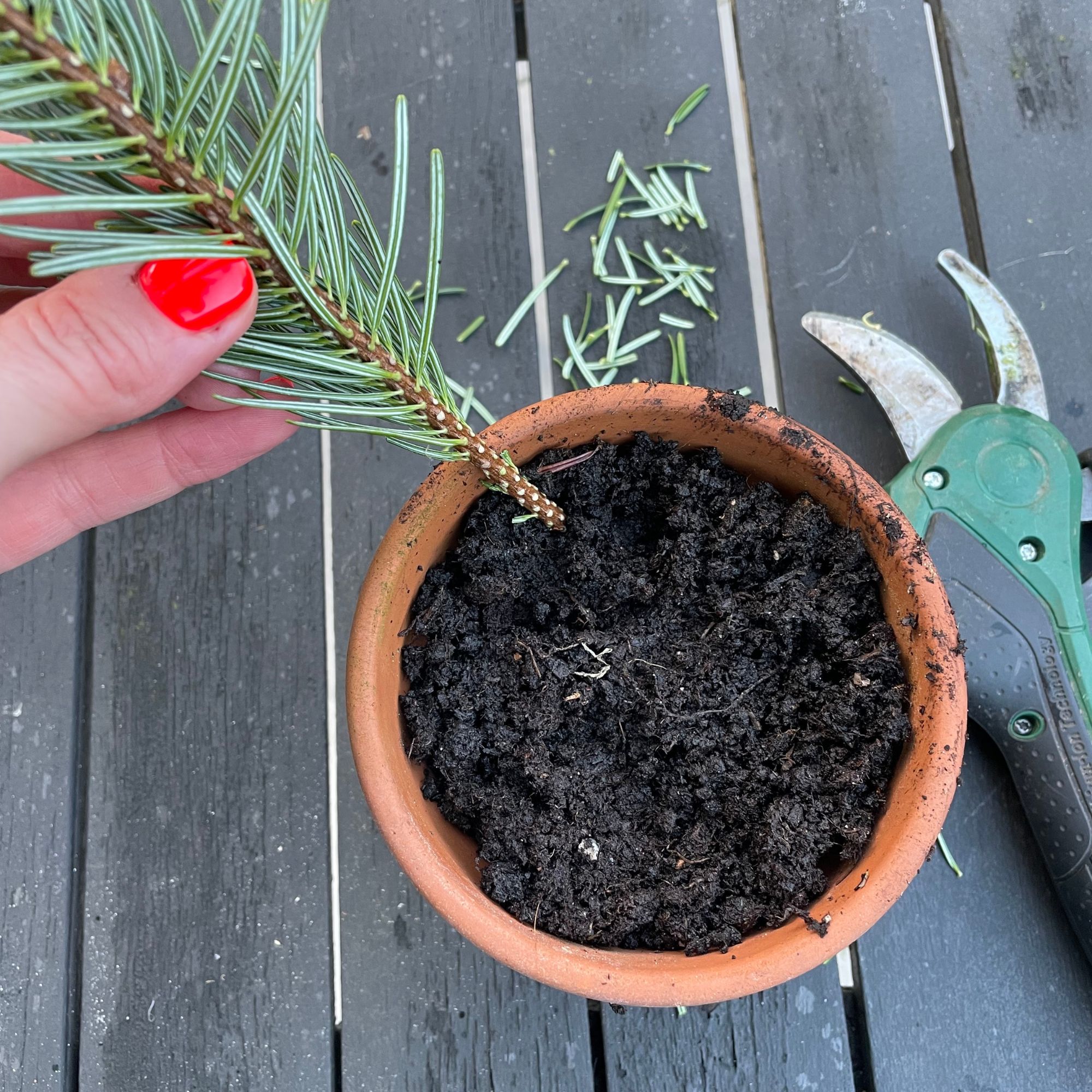
Then, you’ll need to pot the cutting up. On TikTok, Simon demonstrated inserting the stem halfway into a small pot of compost, bare end first.
'Use a potting medium that is lightweight and aerated, with one part perlite or fine bark, for example,' advises Graham.
'The stems and the needles of each cutting should not touch each other, and the needles on the top half of the cutting should be above the potting medium.'
Simon also shared that he covers the surface of the soil in spare pine needles to increase acidity and retain moisture — a makeshift mulch, if you will.
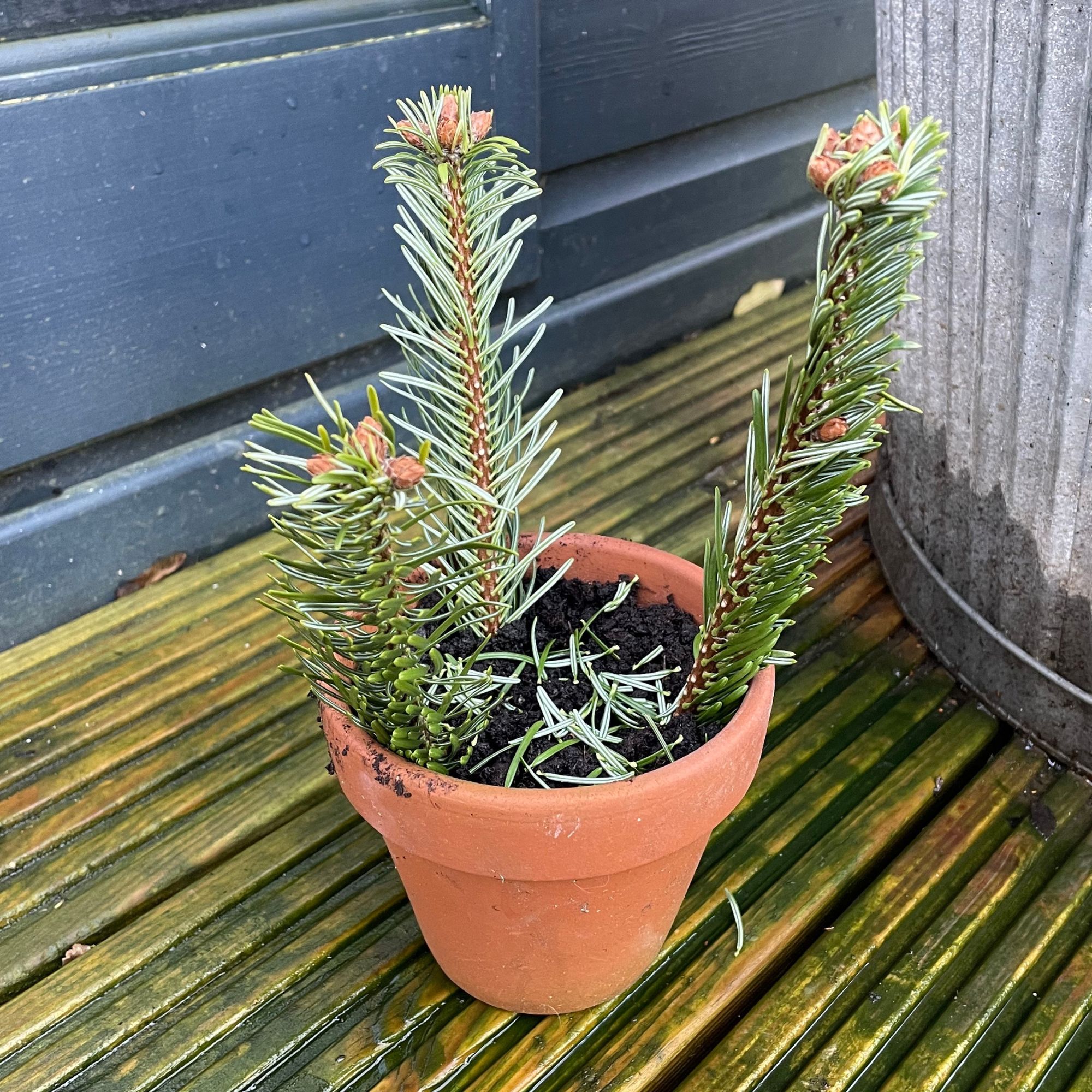
Place the pot somewhere shady and keep the soil moist. Then, Simon says, you’ll need to be patient and wait for your cutting to root.
'If you manage to successfully produce a cutting that roots, this should be allowed to mature for a few months before it is placed outside,' Graham adds. 'After you have planted a cutting, rooting can be a very slow process and you may not actually see any growth until the following spring or summer.'
FAQs
Can you grow a Christmas tree from cuttings?
It's certainly possible to learn how to grow a Christmas tree from a cutting, but the results are slow and often smaller than the size of the parent tree. In fact, growing a Christmas tree from a seed is just as effective — but, again, you'll have to wait several years for the tree to grow.
Still, growing your own Christmas tree from cuttings is incredibly rewarding.
'Growing your own plants of any kind is rewarding and it could even become a family tradition,' says gardening expert Morris. 'Just think, generations to come may well be celebrating around a Christmas tree grown from cuttings of your original tree.'
Will you be learning how to grow a Christmas tree from a cutting this year?






